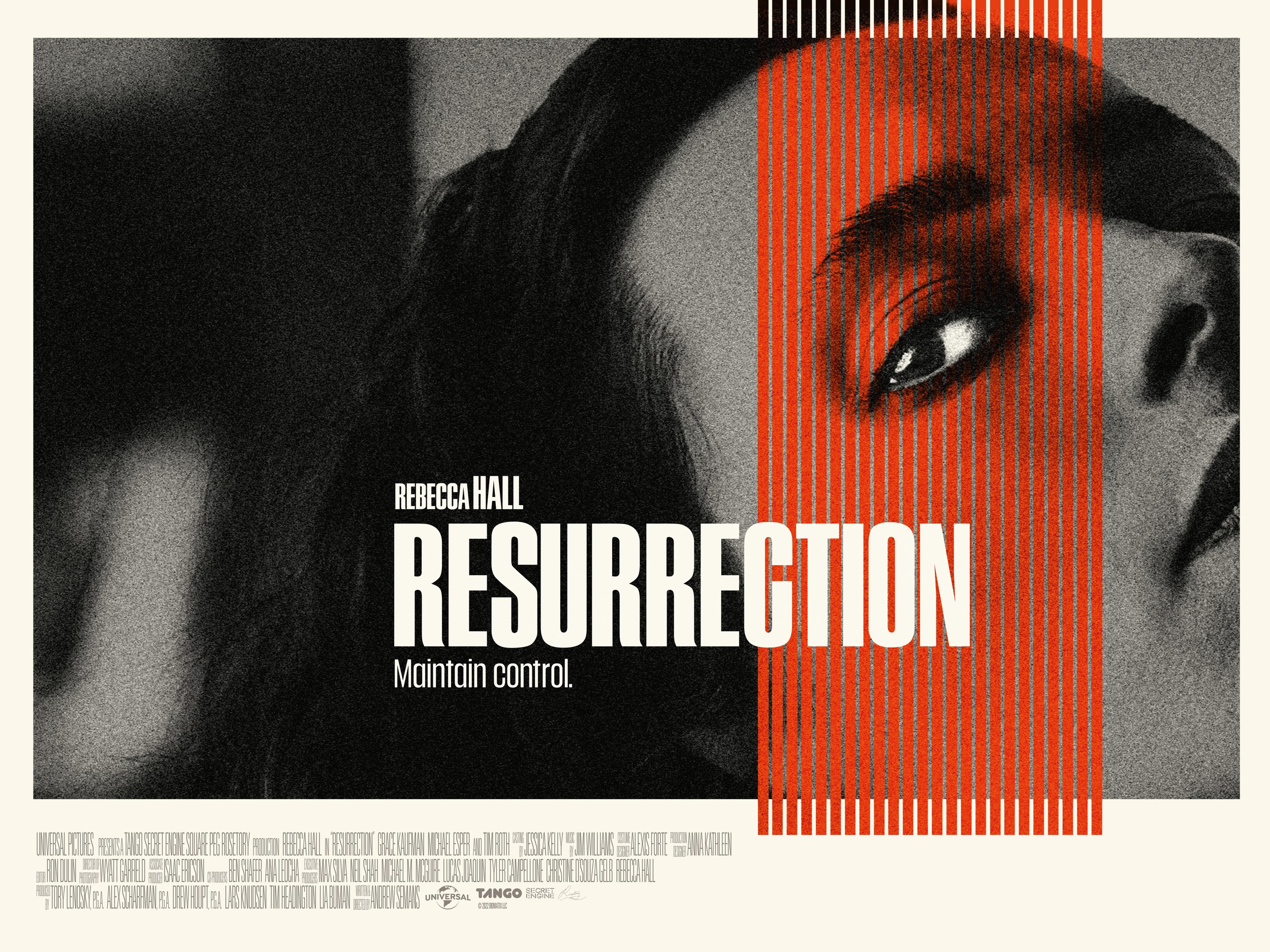2022 | US | Directed by Andrew Semans
Logline: A successful, single mother, with a daughter about to leave home, is horrified to discover a man from her distant past has returned to haunt her.
Writer/director Andrew Semans’ screenplay was one of the most popular unproduced scripts in the international movie industry’s “Black List” of 2019. Ten years after his first feature, Nancy, Please, Resurrection features one of the best performances of the year from Rebecca Hall, a decidedly creepy turn from veteran character actor Tim Roth, and great work from up-and-coming Grace Kaufman.
Margaret (Rebecca Hall) is a businesswoman, living a strict routine in upstate NY. She has a teenage daughter, Abbie (Grace Kaufman), about to head to college, and she is having an affair with one of her married co-workers, Peter (Michael Esper). But her controlled and composed life is about to come crumbling down, when at a conference she spots David (Tim Roth), the man who ruined her life twenty years earlier, and whom she had thought she’d successfully escaped.
But the wounds of trauma have a nasty habit of re-opening, and Margaret has a hell of a wound, about to have salt poured into it.
After an initial panic attack, Margaret goes into protective overdrive, keeping a close watch on her daughter, who immediately notices something is very odd, and definitely wrong. Peter also becomes aware of Margaret’s increasingly erratic behaviour when she initiates urgent sex in the workplace. But worse still, Margaret begins to have nightmares about the trauma she experienced as a young woman, which involved the horrendous psychological and physical abuse David inflicted on her, and their infant baby, caught in the middle.
Resurrection is, essentially, a psychological thriller that plays on the subjective experience of its protagonist, a woman plagued by the trauma of her past and the escalating deterioration of her mental health as she struggles to cope with its effects on her present life. The narrative becomes increasingly less reliable as Margaret’s reality disintegrates, as memory, reality, and fantasy collide in the final act.
If one is prepared to suspend belief Resurrection works very well, with Seman in expert control of his central character’s emotional trajectory. Rebecca Hall remains at the top of her game delivering a tour-de-force performance of a woman losing her mind, hanging on by her fingernails as the monster from her past emerges from the darkness of the past she had hoped would remain in the shadows. But how much of Margaret’s perceived reality is actually happening? It’s possible much of what Margaret thinks is happening, after she first sees David, is in her mind.
Grief is a devastating emotion, especially that of losing a child, and Margaret’s palpable fear of losing her daughter to the man who stole their child, yet claims to still have him close, is a truly nightmarish scenario. Hall delivers a powerful, riveting monologue to her young co-worker Gwen (Angela Wong Carbone), whom had been seeking personal guidance from her boss, in a scene that will no doubt earn Hall an Oscar nomination.
Resurrection is a tenebrous and elusive tale, and yet another delve into the damaged mind, which we’ve been seeing a lot of in these pandemic times. It’s a disquieting and tense film about abuse, primarily psychological and emotional, and how the ramifications of trauma can still be triggered and ruinous many years after the fact. A tale that spills into full-blown horror in its final stage, after Margaret bravely faces David, who has had the upper hand since the start. It is the very end that will polarise viewers, but it’s an ending that makes sense, even darkly satisfies, if you accept the throes of death.




